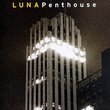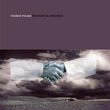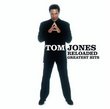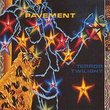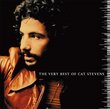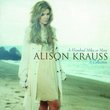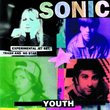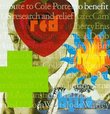| All Artists: David Ware Title: Surrendered Members Wishing: 0 Total Copies: 0 Label: Sony Original Release Date: 5/23/2000 Release Date: 5/23/2000 Genres: Jazz, Pop Style: Avant Garde & Free Jazz Number of Discs: 1 SwapaCD Credits: 1 UPCs: 074646381625, 5099706381624 |
Search - David Ware :: Surrendered
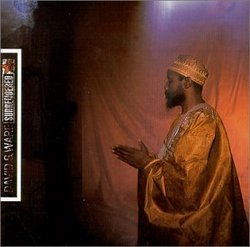 | David Ware Surrendered Genres: Jazz, Pop
For his second album on Columbia (following Go See the World), saxophonist David S. Ware has continued moving from the Herculean pyrotechnics that have been his stock-in-trade for three decades to a more melodic sound... more » |
Larger Image |
CD DetailsSynopsis
Amazon.com For his second album on Columbia (following Go See the World), saxophonist David S. Ware has continued moving from the Herculean pyrotechnics that have been his stock-in-trade for three decades to a more melodic sound. The saxophonist still continues the work of John Coltrane's last phase, but he has found the same balance of freewheeling energy and arching melody that Charles Lloyd and Andrew Hill have. Within this new musical space, the leader and his talented quartet easily move from slow, impressionistic "Peace Celestial" to the rollicking title track to the urgent "Glorified Calypso" with offhand ease. Of particular note for the band is the stunning "African Drums," the 17-minute closing tune that continually turns a simple melody inside out in much the same way that Coltrane and Co. did with "My Favorite Things." David S. Ware has reinvented himself on Surrendered, not because he needed to, but because an artist has to continually do so. And there is no doubt that this is indeed art. --Tad Hendrickson Similarly Requested CDs
|
CD ReviewsWare makes his own way. Douglas Groothuis | 01/25/2002 (4 out of 5 stars) "David Ware plays a deep, fast, unique horn. Tonality is key to his technique, but he is not painfully bizarre--as was Pharaoh Sanders most of the time when he nearly ruined the latter Coltrane group (except when he played alto on "Live in Japan"). Ware's music is sometimes jarring, but bright with innovation. "Surrendered" is more approachable and less "outside" than, say, "Go See the World," which I also like. There is more song structure than in other "outside" jazz. Ware's fellow musicians fit well with his sensibilities, especially his pianist, Matthew Shipp, who can hold his own with Ware's ecstatic flights into the unknown. The last piece sounds a bit like "My Favorite Things," and swings in 3/4 time.This is not one of my most-played discs, but it is just right for some moods. Ware has a voice of his own, to be sure.--Douglas Groothuis" A calmer set for a tenor terror p dizzle | augusta, georgia, USA | 06/16/2000 (4 out of 5 stars) "mr. ware has been at the front of the free jazz scene for several years now, playing highly charged, blistering jazz. this album finds the heat turned down a little as mr. ware explores music reminiscent of john coltrane's 'love supreme' and pharaoh sanders' 'karma.' "peace celestial," the opening track, sets the tone immediately as the band repeats a phrase to build an atmosphere, then the soloists play back and forth over the original phrase, raising the musical tension. it grabs the listener, focuses them, and quickly eight minutes is over. "sweet georgia bright" is a nice nod to charles lloyd, featuring a much shorter version than lloyd's own 18 minute+ debut on 'live in the soviet union.' the shortness centers the audience on the tune's inherent swing, revealing mr. ware's solid classic jazz chops. 'glorified calypso' shows mr. ware's controlled fury, pushing limits without boiling over. 'african drums' is an extended closer, employing the same technique as the opener by building on a central riff, painting a musical landscape, and allowing for intriguing interplay between the soloists, showing the tightness and affinity this group has garnered over the years. overall, a very satisfying free jazz session by great players." Ware's finest session ... so far. Troy Collins | Lancaster, PA United States | 05/16/2004 (5 out of 5 stars) "Free Jazz can be a difficult genre to expose people to. Especially when it comes to trying to recommend good introductory examples of it for novices. David S. Ware's second album for Columbia is just that sort of album. It's title has more to do with Ware's own realization that the time for the underground / indie rock scene to crossover with the free / avant-garde jazz community is ripe. This is more so than the spiritual inclinations given in the liner notes. Although those notes even acknowledge Ware's ubiquitous popularity among the tatooed and pierced set. Current opening slots for Sonic Youth certainly help in his exposure to this new breed of potential jazz fans.The music itself is straight out of the now classic free jazz tradition as conceived by late period John Coltrane, Cecil Taylor and Albert Ayler. Free form drumming, screaming saxophones, modal bass plucking / bowing and slammed piano clusters have all been the trademarks of Ware's group sound in the past. But this album begs a plea for mainstream acceptance. Half of the album's tracks are straight out of the post-Coltrane tradition of monumental, free form-energy jazz, albeit with a somber / spiritual feel. Melodically they also share Coltrane's fascination with repeated motifs and repetitive melodic "mantras". But the rest of the tunes use traditional rhythmic structures to anchor them. This is new territory for Ware and his cohorts. There is a short R&B swing-shuffle, a propulsive calypso piece and a modal, African drumming styled selection to round out the disc. The sax solos are still tumultuous and full of the same building, blistering fury that put his name on the map. Matthew Shipp's piano playing is meandering and atonal yet strangely romantic in a melodic sort of way. But it is the rhythm section that holds it all together.What some would call a watering down of Ware's normally advanced structural forms for the sake of mainstream acceptance, I call a breakthrough. For those looking to experience the cutting edge of today's avant-garde jazz scene in a traditional acoustic quartet format, this is the perfect compromise between classic "out" blowing and more rhythmically solid song structures. Some will cry sell out, I say it's his most listenable album yet. In a sense, it's his best one yet."
|

 Track Listings (6) - Disc #1
Track Listings (6) - Disc #1